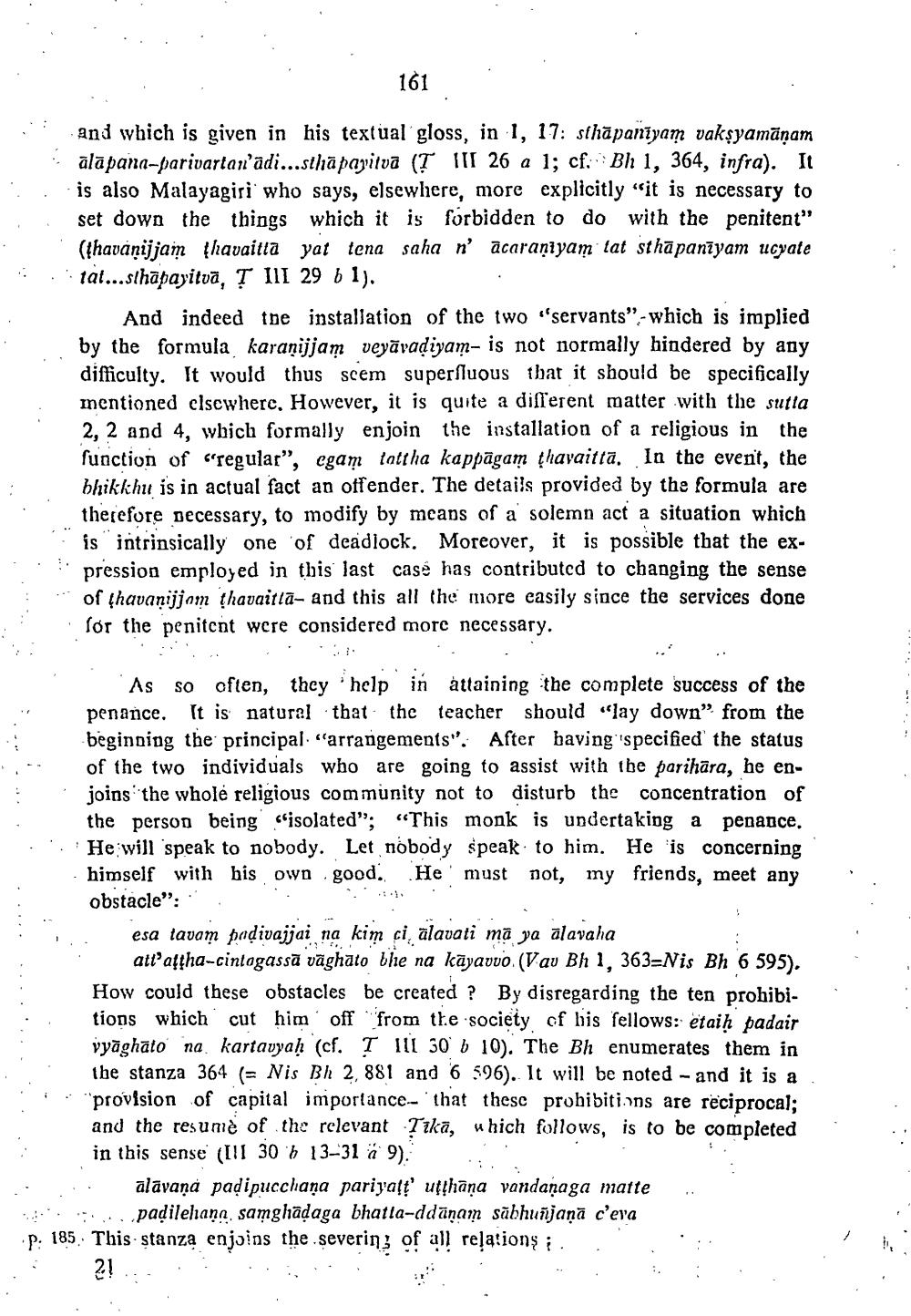________________
161
.
and which is given in his textual gloss, in 1, 17: sthāpaniyam vakşyamāṇam álāpana-parivartan’ādi...sthāpayilva (T III 26 a 1; cf. Bh 1, 364, infra). It
is also Malayagiri who says, elsewhere, more explicitly “it is necessary to i set down the things which it is forbidden to do with the penitent" .(thavaņijjam thavaitta yat tena saha n' acaraniyam tat sthapanīyam ucyate tat...sthāpayitva, T III 29 b 1).
And indeed the installation of the two "servants" - which is implied by the formula karanijjam veyāvadiyam- is not normally hindered by any difficulty. It would thus scem superfluous that it should be specifically mentioned elsewhere. However, it is quite a different matter with the sutla 2, 2 and 4, which formally enjoin the installation of a religious in the function of "regular", cgam tattha kappāgam thavaitta. In the event, the bhikkhu is in actual fact an offender. The details provided by the formula are therefore necessary, to modify by means of a solemn act a situation which is intrinsically one of deadlock. Moreover, it is possible that the expression employed in this last case has contributed to changing the sense of thavanijjom thavaitta- and this all the more casily since the services done for the penitcnt were considered more necessary.
As so often, they help in åttaining the complete success of the penance. It is natural that the teacher should "lay down” from the beginning the principal. “arrangements". After baving specified the status of the two individuals who are going to assist with the parihāra, he enjoins the whole religious community not to disturb the concentration of
the person being “isolated"; "This monk is undertaking a penance. .. He will speak to nobody. Let nobody speak to him. He is concerning
himself with his own good. He must not, my friends, meet any obstacle":
esa tavam podivajjai na kim ci, alavati ma ya alavaha
att'alpha-cintagassā vāghato bhe na kāyavvo (Vav Bh 1, 363=Nis Bh 6 595). How could these obstacles be created ? By disregarding the ten prohibitions which cut him off from the society of his fellows: etaih padair vyāghāto na kartauyah (cf. T III 30 b 10). The Bh enumerates them in the stanza 364 (= Nis Bh 2,881 and 6 596). It will be noted - and it is a "provision of capital importance - 'that these probibitions are reciprocal; and the resume of the relevant Tika, which follows, is to be completed in this sense (III 30 h 13-31 ä 9). . alavaná padipucchaņa pariyatt' utthāna vandanaga matte
padilehann samghadaga bhatla-ddāņam sābhuñjaņā c'era p. 185. This stanza enjoins the severin: of all relations ;




